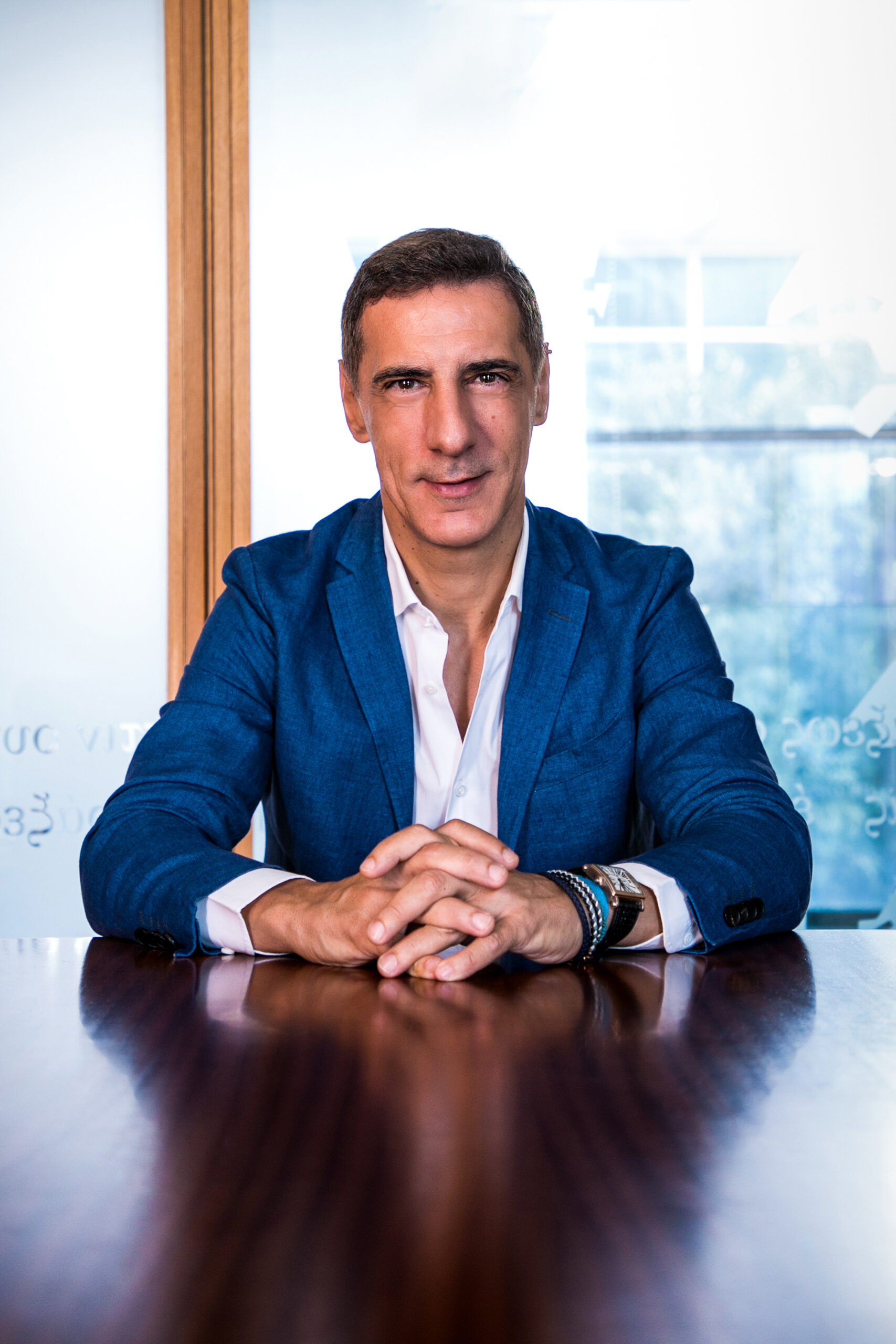
Getting the right partnerships on the ground has been key to Atterbury Europe’s success in new territories, and when the company first invested in Cyprus, it forged a relationship with Elias Neocleous & Co LLC. The firm has been a valued advisor in the years since. Dynamic managing partner Elias Neocleous shares his insights about the real estate landscape in Cyprus, the long term impact of Covid-19, and why the Atterbury Europe partnership works so well.
What did the real estate development environment in Cyprus look like when Atterbury Europe first arrived?
In many respects Atterbury Europe picked the perfect time to enter Cyprus. Activity levels in 2013 and 2014 had stagnated and prices had slumped in response to the banking and financial crisis of 2013. When Atterbury Europe appeared on the scene in late 2014, however, it coincided with the beginning of a turnaround in the country’s economy, including the real estate development sector. By the next year end a small growth in GDP had been recorded as had, for the first time since 2010, an increase in the number of building permits issued. Both trends continued during the period 2015-2019 with a notable increase in the appetite for larger properties and developments taking place. In fact, the “average area” per building permit rose by some 12.5% across the same period. The share of GDP accounted for by the real estate and construction sector echoed this growth, increasing from around 14% to 17% of the total.
What is the most important type of advice you share with an international company coming into Cyprus – are there specific particularities to the Cypriot regulatory landscape that foreign investors tend to stumble over?
It is important for the company to be aware that both the Cyprus government and the Cypriot people want them to come to our country. Successive Cyprus governments, irrespective of party politics, have for many decades actively encouraged foreign direct investment. Consequently, the business, taxation and regulatory environment is intended to be welcoming rather than forbidding. Growing the economy via highly skilled and high value added businesses is viewed as both desirable and essential for the future sustainability of the Cyprus economy. Recent changes to foreign investment policy are designed to promote this and to ease much of the red tape associated with, for example, the employment of third country nationals (highly skilled and support staff) and their right to be accompanied by family members. That said, there is still work to be done to modernise the way in which our governmental departments operate, some procedures remain overly bureaucratic and can be confusing to the uninitiated. The best advice that I can give is to do your homework and engage good quality local professionals from the outset. They have the advantage of knowing which documentation is required, how it should be completed and who should see it. Importantly, they should be fully on top of any beneficial government schemes and tax policies that may be applicable. They will also have the local contacts who can ease or remove obstacles that can arise, and the local knowledge to assist with practical matters such as locating premises, staff recruitment and so on.
You have worked with Atterbury Europe over several years now. Do you think the company has integrated well into the Cypriot way of doing business, and why do you think it has been successful?
It is always a pleasure working with Atterbury Europe, not least because of their sheer professionalism and attention to detail. The company has certainly become a strong voice within the Cyprus business community. A big part of this is due to the way they have undertaken their development projects. They do their homework, look at what is lacking from an area and then provide it within a beautiful building space. They become part of the community rather than a tag-on or a replacement. The Mall of Cyprus was a success from day one because it offered something which had been lacking from the Cyprus consumer experience. The idea that one could do shopping ranging from home furniture through to high fashion and general groceries all under one roof with free parking and several quality restaurants was a total novelty. Add in air-conditioning throughout in the middle of our roasting summers and many Nicosians thought they had died and gone to heaven! Similarly, in redeveloping the Mall of Engomi, Atterbury has examined the neighbourhood and produced an offering centred around a vibrant food court which will appeal to the local population mix of affluent households and students.
You have extensive knowledge in the fields of corporate, taxation and trusts law, and experience in providing international businesses with advice at the highest level. Without naming names, can you share an example of a recent project where a client benefited from your expertise?
Many of the projects which the firm and I engage in are complex and involve several jurisdictions and different branches of the law. This is where our size and structure as an international and fully departmentalised firm works both to our advantage and to that of our clients. It allows us to quickly pull together cross-discipline teams with appropriate experience and skills to ensure high quality and efficient service. By way of example, we recently assisted a Forbes-list client, who controls a vast international conglomerate, in the broader restructuring of his holdings to establish robust family and business structures in Cyprus. As part of a wider cross-border team we assisted in a reorganisation of the client’s affairs to achieve the stated goal of asset protection, inheritance planning and overall wealth-planning mechanisms via reorganisation of his asset-holding structures by segregating non-generating cash units (family assets) and active business assets through various Cyprus corporate and trust structures, including establishing a fully staffed family office in Cyprus.
Has the Covid-19 pandemic changed the way you conduct business at all, and do you foresee any lasting changes?
I think that it is fair to say that the pandemic has not been a catalyst for changes in the way that Elias Neocleous & Co LLC does business, but it has been an accelerant for changes that were already underway. Those businesses which have fared best during the pandemic, such as our own, have tended to be those already immersed in digital transformation or those which were able to quickly transform their operations to take advantage of digitalisation. Our long history of investment in technology, digital transformation, modern work practices and above all in our people meant that practices such as “working from home”, online meetings (internal and external), webinars, e-signatures and so on were taken in our stride without any interruption to client service. Novel circumstances, such as court and government office closures, did however inspire our people to adapt their normal modus operandi and develop alternative, innovative solutions for the benefit of our clients. Our chief concern throughout has been maintaining the safety of our staff and clients and, of course, ensuring that we kept on top of the ever-changing list of government regulations.
Looking forward I do see our business being conducted in a slightly different fashion to how it was before the onset of Covid 19 – a hybrid between “old” and “new” systems. For example, the use of services such as Microsoft Teams and electronic signatures can save valuable time and cost on travelling and more for both client and lawyer. While I envisage that clients and staff will sometimes want to meet in person, for many of the less complex issues, technology provides an efficient and cost-effective alternative. Similarly, while many of our staff initially enjoyed the novelty of working from home and felt they were more efficient operating there, they soon began complaining of missing office life. Many felt their creativity and problem-solving abilities were hampered by not being able to bounce ideas off others around them; in those instances, online chats were not deemed to be an adequate substitute since they lacked the spontaneity of in-person encounters. The future may therefore involve the firm considering more flexible working arrangements for staff who request it involving a mix of office and home-based working.
What are your main objectives for 2022?
As with any commercial business our number one concern must always be to ensure that we are successful in achieving our budget for the year. Financial success allows us to drive forward new projects and initiate changes that will keep us at the head of the legal sector in Cyprus. For example, continued financial success has allowed us to forge ahead with developing the first Cypriot Alternate Legal Services Provider, Neolaw.ai, which following some successful pilots, will soon be ready for full roll-out. It has also allowed us to expand our network to include a fully staffed Brussels office which offers numerous advantages for our clients. Importantly, it also allows us to engage in numerous corporate social activities which enrich both the local community and our staff who organise them. Our firm is very much a part of the Cypriot community and I take our corporate social responsibilities very seriously. Moving forward, we are keen to help the government implement its new investment strategy which is focused on attracting real, cutting-edge commerce and industry to Cyprus and, on promoting our excellent shipping sector. Successful implementation should see Cyprus benefit from real sustainable economic growth and reduce reliance on the tourist sector. We also aim to open investor eyes about the vast potential of ESG-related activities and ensure that our own offices are run firmly on a sustainable basis. I am mindful that the past two years have been extremely stressful for our staff because of the pandemic situation. I am conscious that some may find the prospect of returning to the office daunting and perhaps they are a little fearsome. Our number one asset is our staff, consequently, the HR team and I are already working closely to ensure that any potential mental health issues are dealt with in a manner that allows all staff to feel valued and know that their safety and well being is paramount.

